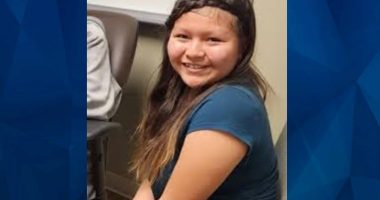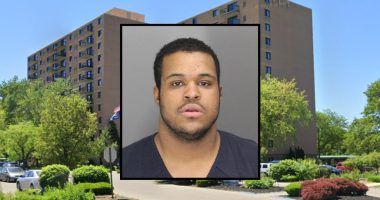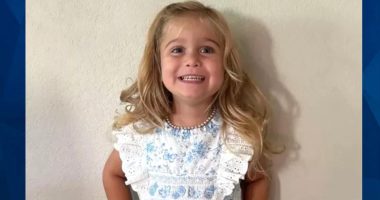

New York’s most prolific serial killer who admitted to murdering 17 women over a six-year period has spoken about how he had vowed to stop ‘100 times’ but it was ‘the same as quitting smoking’ in a ground-breaking new interview. Joel Rifkin (pictured left), now 64, was convicted of nine counts of second-degree murder and sentenced to 203 years in prison for the slayings that took place between 1987 and 1993. This time they were aided by television producer Peter Reiss who had built a rapport with Rifkin over the years after first interviewing him for a science documentary about ‘the biological causes of violence’ in 1998. The pair sat down for the killer’s first public interview in almost a decade which is set to air as part of A+E’s upcoming two-part special titled Cold Case Files: The Rifkin Murders – with a preview clip shared exclusively with DailyMail.com showing the murderer voicing deep regret over his heinous killings.


Rifkin, who is currently serving out his sentence at the Clinton Correctional Facility, had been questioned by police in the quest to identify victims ‘six’ and ‘nine.’ Reiss interviewed him a short time later, in August 2022, in a bid to help coax information out of the killer who is now sporting a long pony tail and bushy gray beard. He was first asked what it had been like meeting with investigators in recent months, to which he said: ‘Those interviews are more difficult because all the memories come back. It took a while to get readjusted afterwards.’ Revealing that investigators had showed him ‘well over 100’ pictures of potential victims, Rifkin admitted that he no longer knows whether there is anything left for police to work with, saying: ‘So much has changed, it’s… is there anything still left to look for?’
![During that meeting with investigators, Rifkin called out one woman - named Denise Griffin - who he said seemed familiar to him. 'Hairstyle, color, general roundness of the face... were a lot similar to [victim number] six,' he said. Rifkin went on to share some insight into his crimes, revealing that he himself still struggles to understand how he went about choosing his victims. 'I could be with two or three girls in one night and they'd be fine,' he shared. 'The next night I could be with another two or three girls, the first two would be fine and the third one wouldn't be. 'Why her and not the other five? I still don't understand.'](https://i.dailymail.co.uk/1s/2023/09/28/16/75931793-12571819-During_that_meeting_with_investigators_Rifkin_called_out_one_wom-a-115_1695916431667.jpg)
![During that meeting with investigators, Rifkin called out one woman - named Denise Griffin - who he said seemed familiar to him. 'Hairstyle, color, general roundness of the face... were a lot similar to [victim number] six,' he said. Rifkin went on to share some insight into his crimes, revealing that he himself still struggles to understand how he went about choosing his victims. 'I could be with two or three girls in one night and they'd be fine,' he shared. 'The next night I could be with another two or three girls, the first two would be fine and the third one wouldn't be. 'Why her and not the other five? I still don't understand.'](https://i.dailymail.co.uk/1s/2023/09/28/16/75931793-12571819-During_that_meeting_with_investigators_Rifkin_called_out_one_wom-a-115_1695916431667.jpg)
During that meeting with investigators, Rifkin called out one woman – named Denise Griffin – who he said seemed familiar to him. ‘Hairstyle, color, general roundness of the face… were a lot similar to [victim number] six,’ he said. Rifkin went on to share some insight into his crimes, revealing that he himself still struggles to understand how he went about choosing his victims. ‘I could be with two or three girls in one night and they’d be fine,’ he shared. ‘The next night I could be with another two or three girls, the first two would be fine and the third one wouldn’t be. ‘Why her and not the other five? I still don’t understand.’


Asked if something simply ‘comes over him,’ the killer said: ‘It’s been called that.’ He continued: ‘We read books that mean guys fantasize about murder and mayhem all the time – I don’t know – I guess a that moment the fantasy life and real life just intertwined. You lie to yourself while you’re doing this, that’s the other thing. You do one – well they can only kill you the first time for the one so the second one becomes like a free one. Well, so then you can rationalize the third one – back and forth, back and forth.’ He said he vowed to stop ‘like 100 times’ but added: ‘It’s the same as quitting smoking.’ Pictured: Joel Rifkin. June 28, 1993.


In a clip shared exclusively with DailyMail.com, Rifkin was asked whether he ‘really feels sorry for what he has done’, to which he responded: ‘Yeah. They’re gone.’ He went on to explain how a letter he received from a mother-of-five, who says she ‘knew him on the streets’, truly brought home the gravity of his crimes, explaining: ‘I get weird mail. I get interesting mail, I get psycho mail, I get a lot of mail. ‘But I get this letter, in female handwriting, it was obviously from a woman. “Hi, I knew you on the streets, you knew me. Thank you for not killing me, I now have five daughters.” ‘So these five kids, had things gone differently those two nights, wouldn’t be here. ‘I start thinking about all the stuff that never happened, and then… yeah, there’s a lot going on up there.’
Read Related Also: United Nations reports Colombia's potential cocaine output rose 24% in 2022 – days after country's president proposes Latin American alliance to transform 'war on drugs'


Rifkin, who said he was ‘not normal at the time,’ reflected: ‘It’s a double-edged tragedy. They’re gone. I’m sitting in here. I had a lot of other plans and fantasies about a different life – that’s gone. ‘I’m sure they had different goals and fantasies, ideas for life and that’s gone for them.’ Rifkin also reiterated the chilling events that unfolded in 1989 when he killed his first known victim, 25-year-old Heidi Balch, whom he knew as ‘Suzie’ – whose decapitated head was found on a golf course. Balch’s body was not identified until 2013 – more than two decades after Rifkin killed her. At the time, investigators revealed how they went about piecing together what had been a 24-year cold case, explaining that they examined a short list of known sexual workers who had been working in the New York City area at the time in order to try and identify the woman found at the scene. Pictured: Jeanne Rifkin, right, leaves the Nassau County Courthouse in Mineola, N.Y., with daughter Jan Rifkin, after testifying at a suppression hearing, Dec. 13, 1993.


In this latest documentary, Rifkin was also probed about the identities and location of his other victims as the producer, Reiss, attempts to unravel the truth. His mother, Jeanne Rifkin, and sister, Jan Rifkin, said they did not know about the murders, some of which had been committed inside the home they all shared in East Meadow. Despite the horrifying revelations about Rifkin, his family stood by him, visited and called him in jail, and attended his sentencing, during which he issued an apology to the victims’ families.


‘He’s not evil. I’m not either,’ his sister told a New York Post reporter at the time. ‘All I can say is I love my brother.’ Producer and interviewer Reiss explains in the documentary the pressure that he felt while speaking to Rifkin, noting that he was eager to try and obtain any information that could help lead investigators to identifying his final victims. ‘I knew this interview with Rifkin was going to be an important moment so I really had to take advantage of the time I had with him to try to get the information that they were looking for,’ he says in the doc.


Reiss went on to reflect on how Rifkin had changed during his time behind bars, saying that he looked like ‘a much different person’ to the man he’d first met more than 20 years ago. ‘He had the longest ponytail I’d ever seen, a big long beard, he looked like he had aged significantly, and he was a much different person than I remembered him,’ he shared. But Reiss concluded: ‘Everyone wants to know does Rifkin actually feel remorse. He knows what he did was wrong. I think he knows that intellectually but I don’t think he actually feels it in his soul. I just think that he doesn’t possess the emotions. He can’t feel that emotion for whatever reason. It just doesn’t exist in him.’ Read the full story:


Want more stories like this from the Daily Mail? Visit our profile page here and hit the follow button above for more of the news you need.









